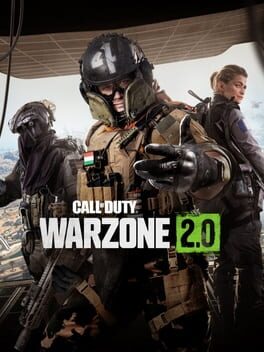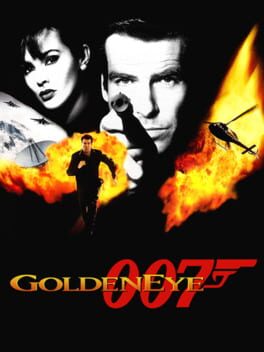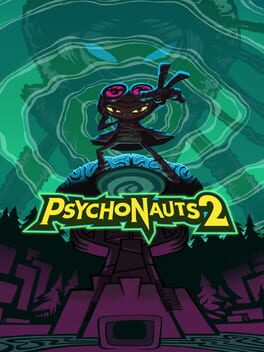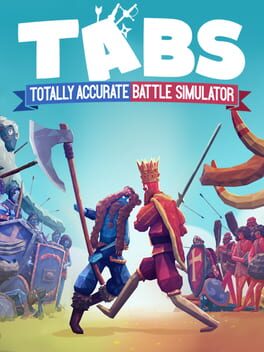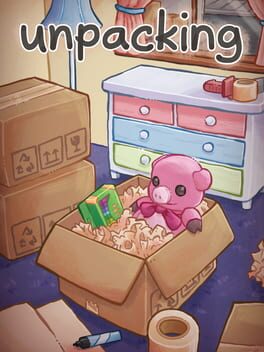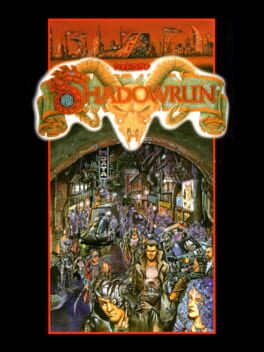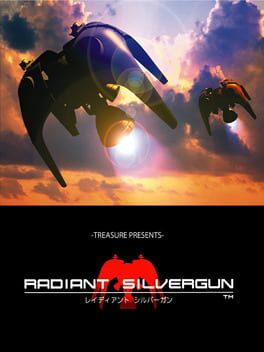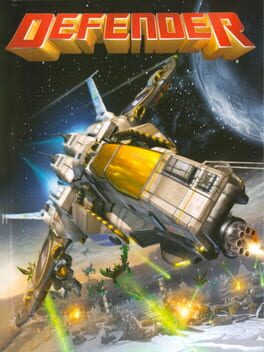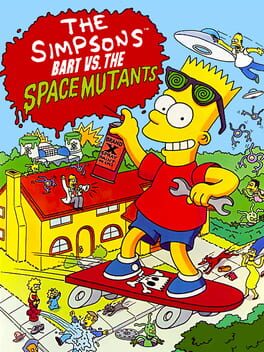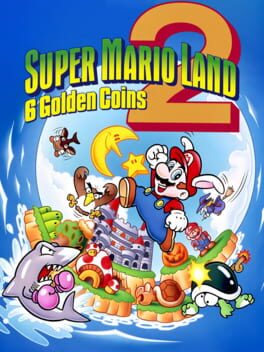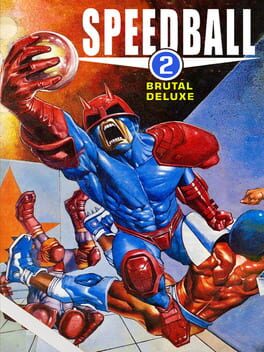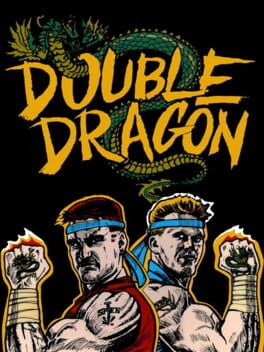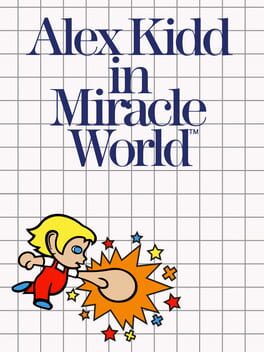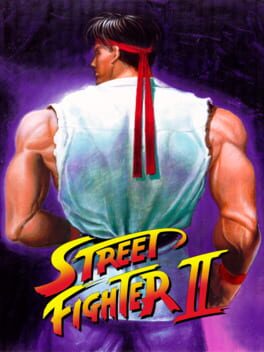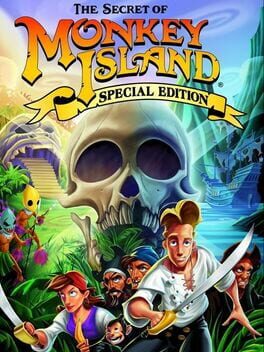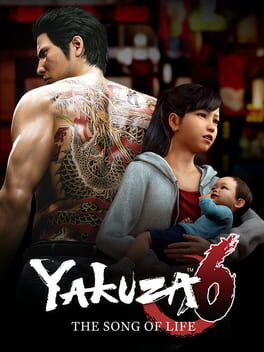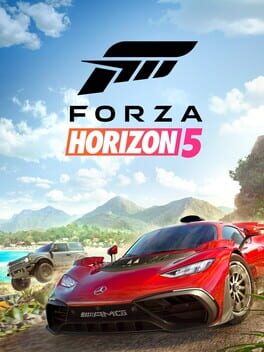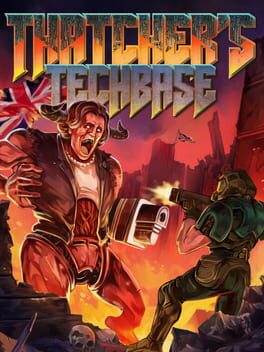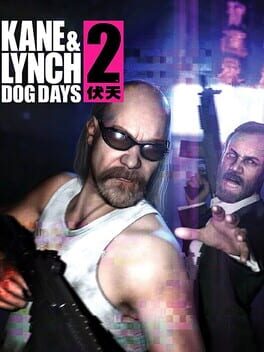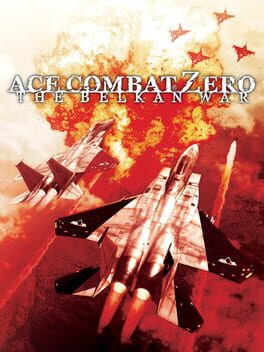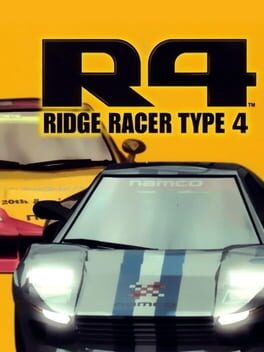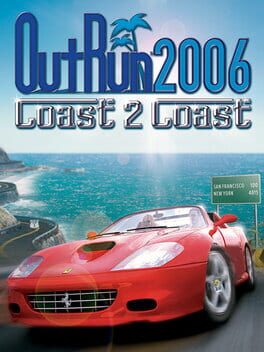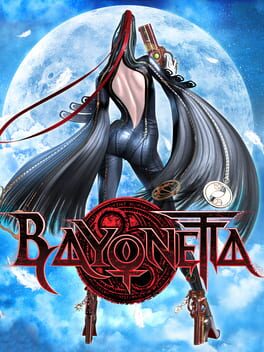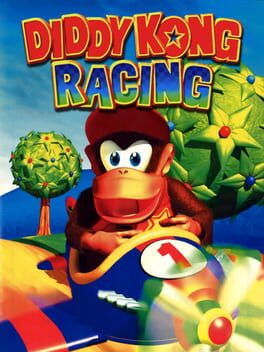warnerchild
75 reviews liked by warnerchild
Along with Animal Crossing: New Horizons and DOOM, Call of Duty: Warzone formed part of what I've been internally referring to as "the saviour trilogy" - the three games that were up to the task of keeping me in the game of the early pandemic when everything was uncertain, indeterminate and appalling. Warzone was by no means a perfect game - it was janky, it was buggy, it was stupid (in both pejorative and complimentary senses) - but it was more than capable of performing the crucial "zoom call with the boys" function: while my girlfriend and my grandmother and my work colleagues hopped onto group video calls to play murder mysteries and do pop-quizzes, me and the fellas used Warzone as an excuse to war-room about what was (or, more accurately, what wasn't) happening in our lives while the viral battlefront raged outside.
The gameplay was mostly ancillary, but had plenty of highlights: BIG-team Call of Duty with proximity voice chat and "death screams" combined with semi-invincible vehicles and 1km+ sniper rifles lead to a lot of hilarity and outside-the-box gameplay you wouldn't expect from the franchise - chasing dudes up staircases with quad bikes, throwing tomahawks at UAVs, having a smoke+riff sesh with your dudes in a helicopter that's flying too high for the guys with SMGs and shotguns in the Final Circle to reach... the possibilities were more or less endless, and the creators of 1.0 seemed happy to permit revelry in regressive behaviour (though in reality I imagine patching a 100GB+ game in April 2020 was a living nightmare for Infinity Ward and the 13 other Activision studios who supported them).
The day Warzone asked me and the squad to download two 100GB patches in one week was the day the game died for us. We were all playing on Base PS4s with default hard-drives, luddite gamers who had no interest in Pros and Plus and Platter-Externals for the sake of a F2P Zoom call. We trailed off into the world of Hunt Showdown and Fortnite and never looked back at the gigabyte-gomorrah we uninstalled ourselves from; like Animal Crossing, there was probably some degree of post-covid relief to be found in that digital distance. I only ever really heard about the game again via the bizarre phenomenon of grown men in their thirties and forties telling me, with surprising frequency, that they'd queued for 8 hours or spent £1000 to get a PlayStation 5 specifically so that Warzone would load faster and could be installed alongside other games. Crazy, huh? Imagine being that invested in video games.
Ironically, it wasn't any new feature or map or content that brought me back for Warzone 2.0 - it was the simple announcement that the install size of the game had been reduced by 80%. The wonders of next-gen gaming! As you might expect from a project that has 23,000 people in the credits, the game itself is almost completely unchanged from Warzone 1.0; while there's an initial awkward adjustment period in exchanging East European forests for Middle-East Asian fields, it's surprising how familiar everything feels - almost as if someone's run a Google Translate AI filter over all the Кока-Кола billboards to make them say الكوكا كولا instead; difficult questions re: globalisation that emerge in trading out Ukraine for Iran are mostly side-stepped by simply having the new war-country act as a toybox for generic PMCs. War has changed in order to become unchanging. An eternal battleground that persists regardless of what language the 400MB road signs are in. And as far as gameplay goes, my only complaint is that they made the cars and trucks are weak as shit.
DMZ, the new Tarkov/Hunt/DayZ mode, comes under much tighter scrutiny. Or it would, if it was capable of running for more than 20 minutes at a time. Essentially a mini COD MMO with anywhere-PVP, it's a classic case of a gamer's platonic dream-ideal making way for a CEO deadline-induced nightmare: progress lost; parties blocked; playlists broken; queues abound; hard crashes at crucial moments - arguably it's all launch-week teething issues that will pass like unconvincing PhysX dust on the plains of Notpakistan, but this is a mode where every mote and moment of progress is supposed to count for something: all decisions are final, and there's only one way out. Losing progress to the desktop's void stings all the tighter when so much of the moment-to-moment gameplay here involves inventory management that doesn't matter - inventory management in games never matters all that much, but it really doesn't matter here: weighing up whether to stow the Aged Wine or the Vintage Wine for the difference of $50 (to buy a gun that costs $5000+) only to walk over a lagged-out landmine moments later and lose three hours of progression... That's life, I guess, but it's not exactly condusive towards the life-escaping levels of Zoom Call With The Boys.
Feels impeccably timed that this would drop at the same time as the Qatar World Cup - a broken Middle-East-bound versimilitude of something that once existed in a cleaner, sturdier but no less morally-ethically dubious form. Why was it palatable then, but not now? We're still chewing on it with some degree of gratitude, but there's a look of hypocritical disgust in our eyes. I guess the difference now is that the wheels are now coming off of everything everywhere and we can see the cracks that 'workers' once had the time to paper over. When everyone's connected all at once, there can be no blind eyes. Hopefully they patch in the ability to gib people with chopper blades again.
The gameplay was mostly ancillary, but had plenty of highlights: BIG-team Call of Duty with proximity voice chat and "death screams" combined with semi-invincible vehicles and 1km+ sniper rifles lead to a lot of hilarity and outside-the-box gameplay you wouldn't expect from the franchise - chasing dudes up staircases with quad bikes, throwing tomahawks at UAVs, having a smoke+riff sesh with your dudes in a helicopter that's flying too high for the guys with SMGs and shotguns in the Final Circle to reach... the possibilities were more or less endless, and the creators of 1.0 seemed happy to permit revelry in regressive behaviour (though in reality I imagine patching a 100GB+ game in April 2020 was a living nightmare for Infinity Ward and the 13 other Activision studios who supported them).
The day Warzone asked me and the squad to download two 100GB patches in one week was the day the game died for us. We were all playing on Base PS4s with default hard-drives, luddite gamers who had no interest in Pros and Plus and Platter-Externals for the sake of a F2P Zoom call. We trailed off into the world of Hunt Showdown and Fortnite and never looked back at the gigabyte-gomorrah we uninstalled ourselves from; like Animal Crossing, there was probably some degree of post-covid relief to be found in that digital distance. I only ever really heard about the game again via the bizarre phenomenon of grown men in their thirties and forties telling me, with surprising frequency, that they'd queued for 8 hours or spent £1000 to get a PlayStation 5 specifically so that Warzone would load faster and could be installed alongside other games. Crazy, huh? Imagine being that invested in video games.
Ironically, it wasn't any new feature or map or content that brought me back for Warzone 2.0 - it was the simple announcement that the install size of the game had been reduced by 80%. The wonders of next-gen gaming! As you might expect from a project that has 23,000 people in the credits, the game itself is almost completely unchanged from Warzone 1.0; while there's an initial awkward adjustment period in exchanging East European forests for Middle-East Asian fields, it's surprising how familiar everything feels - almost as if someone's run a Google Translate AI filter over all the Кока-Кола billboards to make them say الكوكا كولا instead; difficult questions re: globalisation that emerge in trading out Ukraine for Iran are mostly side-stepped by simply having the new war-country act as a toybox for generic PMCs. War has changed in order to become unchanging. An eternal battleground that persists regardless of what language the 400MB road signs are in. And as far as gameplay goes, my only complaint is that they made the cars and trucks are weak as shit.
DMZ, the new Tarkov/Hunt/DayZ mode, comes under much tighter scrutiny. Or it would, if it was capable of running for more than 20 minutes at a time. Essentially a mini COD MMO with anywhere-PVP, it's a classic case of a gamer's platonic dream-ideal making way for a CEO deadline-induced nightmare: progress lost; parties blocked; playlists broken; queues abound; hard crashes at crucial moments - arguably it's all launch-week teething issues that will pass like unconvincing PhysX dust on the plains of Notpakistan, but this is a mode where every mote and moment of progress is supposed to count for something: all decisions are final, and there's only one way out. Losing progress to the desktop's void stings all the tighter when so much of the moment-to-moment gameplay here involves inventory management that doesn't matter - inventory management in games never matters all that much, but it really doesn't matter here: weighing up whether to stow the Aged Wine or the Vintage Wine for the difference of $50 (to buy a gun that costs $5000+) only to walk over a lagged-out landmine moments later and lose three hours of progression... That's life, I guess, but it's not exactly condusive towards the life-escaping levels of Zoom Call With The Boys.
Feels impeccably timed that this would drop at the same time as the Qatar World Cup - a broken Middle-East-bound versimilitude of something that once existed in a cleaner, sturdier but no less morally-ethically dubious form. Why was it palatable then, but not now? We're still chewing on it with some degree of gratitude, but there's a look of hypocritical disgust in our eyes. I guess the difference now is that the wheels are now coming off of everything everywhere and we can see the cracks that 'workers' once had the time to paper over. When everyone's connected all at once, there can be no blind eyes. Hopefully they patch in the ability to gib people with chopper blades again.
Cyberpunk 2077
2020
"𝙱𝚞𝚜𝚑𝚒𝚍ō" 𝚊𝚗𝚍 𝙽𝚎𝚘𝚙𝚘𝚜𝚝𝚖𝚘𝚍𝚎𝚛𝚗𝚒𝚜𝚖 █
The Cyberpunk franchise is a litmus test of our time. This groundbreaking video game puts on full display the entire spectrum of American society, masterfully pointing out the greatest problems of the neomodern era. Cyberpunk 2077 was, in its own way, a generational manifesto on the affirmation of living life. The use of vivid light and colors, shaky gameplay, ubiquitous blood effects and pervasive crash-to-desktop testifies to the extraordinary self-awareness of the studio director, who once revealed in an interview how he "fucking loves it when hot chicks dissect the shit out of the bad guys." Perhaps no other concept more aptly describes the underlying societal ethos when this game was released.
Especially worthy of note is the repetition in cutscenes of the rockerboy motif, through which the protagonist reinterprets their engrammed reality. One example of this convention's flawless implementation appears in the quest "Disasterpiece": the scene in which the powerful Adam Smasher disembodies the arm of Johnny Silverhand - as played by the transcendently wooden Keanu Reeves - demonstrates in brilliant form the duality of the human and transhuman condition. On the one hand, Johnny loses his cybernetic prosthesis - a symbol of both his tragic past and the ongoing techno-ontological conflict within his psyche; on the other hand, it is precisely due to this dismemberment that Smasher is blown to bits of scrap by a sensational RTX explosion sequence.
And the final disintegration of the antagonist's body into a bloodspray of metallic gore... how should this be interpreted? It is a metaphorical cry of deeply rooted despair, a manifestation of the personal transgression. This fragmentation of body could likewise be interpreted as a fragmentation of the individual mind, thus provoking the question: Whose mind? Indeed, had everything the player seen of Johnny's struggle been, in fact, a personified, embodied fear? Had he not been embroiled in epic battle with a vile corporation, but rather only with himself? Could the entirety of Johnny-V's narrative have only been a manifestation of some cyberpsychotic dream-state?
Among all the depth and nuance that has defined this franchise since its inception, only one thing is truly certain - Cyberpunk 2077 has forever changed the world of video games.
The Cyberpunk franchise is a litmus test of our time. This groundbreaking video game puts on full display the entire spectrum of American society, masterfully pointing out the greatest problems of the neomodern era. Cyberpunk 2077 was, in its own way, a generational manifesto on the affirmation of living life. The use of vivid light and colors, shaky gameplay, ubiquitous blood effects and pervasive crash-to-desktop testifies to the extraordinary self-awareness of the studio director, who once revealed in an interview how he "fucking loves it when hot chicks dissect the shit out of the bad guys." Perhaps no other concept more aptly describes the underlying societal ethos when this game was released.
Especially worthy of note is the repetition in cutscenes of the rockerboy motif, through which the protagonist reinterprets their engrammed reality. One example of this convention's flawless implementation appears in the quest "Disasterpiece": the scene in which the powerful Adam Smasher disembodies the arm of Johnny Silverhand - as played by the transcendently wooden Keanu Reeves - demonstrates in brilliant form the duality of the human and transhuman condition. On the one hand, Johnny loses his cybernetic prosthesis - a symbol of both his tragic past and the ongoing techno-ontological conflict within his psyche; on the other hand, it is precisely due to this dismemberment that Smasher is blown to bits of scrap by a sensational RTX explosion sequence.
And the final disintegration of the antagonist's body into a bloodspray of metallic gore... how should this be interpreted? It is a metaphorical cry of deeply rooted despair, a manifestation of the personal transgression. This fragmentation of body could likewise be interpreted as a fragmentation of the individual mind, thus provoking the question: Whose mind? Indeed, had everything the player seen of Johnny's struggle been, in fact, a personified, embodied fear? Had he not been embroiled in epic battle with a vile corporation, but rather only with himself? Could the entirety of Johnny-V's narrative have only been a manifestation of some cyberpsychotic dream-state?
Among all the depth and nuance that has defined this franchise since its inception, only one thing is truly certain - Cyberpunk 2077 has forever changed the world of video games.
GoldenEye 007
1997
Essentially a battle between the two sides of nostalgia’s collectable coin: on one there’s the ugly and hollow self-perpetuation of “oddjob slappers-only natalya AI bad” that the Nintendo-Microsoft marketing machine is currently indulging in - cravenly memeing about the pause menu music while the game’s original developers call foul of an emulator’s exhumation in the replies column; but on the other side, despite it all, there remains a more sincere evocation of random-access memory here, one that arrives in unexpected moments - on this playthrough I was struck by the sound of Natalya shooting a guard off-screen in the eerie silence of Jungle, the way the cartoon violence suddenly veers towards reality in a rainforest soundscape that thrives upon an absentia of Kirkhope’s otherwise-welcome elevator-electrofunk. It felt good to be reminded of a time when this game felt so real to us and there was genuine fear in Xenia barrelling across a rope bridge with a grenade launcher… I don’t want to go back, but I do like to visit.
Like Pokémon Red & Blue, this is a game that’s ultimately doomed to be misunderstood and maligned by those that came after us. Despite playing this game for days and years on end, I’ve never been able to perceive the all-consuming glitches, bugs and jank these games apparently stink of. A recent Twitter thread recommended switching the control scheme to 2.3 Mode and then using the Switch’s built-in accessibility settings to swap stick and button inputs around in order to get the conventional twin-stick shooter experience; many replies praised the OP for “fixing” the game on behalf of Nintendo - but in what way was the game broken? Why afford yourself precision aiming in a game that is best left in the hands of a frankly glorious Auto-Aim? Why deny yourself the James Bond Musou experience of running down Control’s corridors with dual RPKs on full auto? Why not indulge in a couple of thoughts about how game designers in the 1990s overcame technical limitations that they didn’t even know existed yet? Other gamers in proximity to the thread lamented the fact that the re-release does not include upscaled or redone textures and character models, but I’m not going to get into the Midjourneyification of preexisting art because I don’t like to write mean things about consumers who just want to hitch a ride on a Ship of Theseus that bears the false flag of Goldeneye: 007. It aged poorly? So will you, soon enough.
Like Pokémon Red & Blue, this is a game that’s ultimately doomed to be misunderstood and maligned by those that came after us. Despite playing this game for days and years on end, I’ve never been able to perceive the all-consuming glitches, bugs and jank these games apparently stink of. A recent Twitter thread recommended switching the control scheme to 2.3 Mode and then using the Switch’s built-in accessibility settings to swap stick and button inputs around in order to get the conventional twin-stick shooter experience; many replies praised the OP for “fixing” the game on behalf of Nintendo - but in what way was the game broken? Why afford yourself precision aiming in a game that is best left in the hands of a frankly glorious Auto-Aim? Why deny yourself the James Bond Musou experience of running down Control’s corridors with dual RPKs on full auto? Why not indulge in a couple of thoughts about how game designers in the 1990s overcame technical limitations that they didn’t even know existed yet? Other gamers in proximity to the thread lamented the fact that the re-release does not include upscaled or redone textures and character models, but I’m not going to get into the Midjourneyification of preexisting art because I don’t like to write mean things about consumers who just want to hitch a ride on a Ship of Theseus that bears the false flag of Goldeneye: 007. It aged poorly? So will you, soon enough.
Psychonauts 2
2021
Incredibly well-crafted, insanely well-written, superbly scored, constantly entertaining and all held together with a colurful graphical style that belies its true narrative depth.
They don't make 'em like they used to - but this is certainly the exception that proves the rule.
Aside from Mario Odyssey, there's not a lot of "3D Action Platformers" in the market and this game helped me understand why...
Back in the days of PS1/N64 every other game was a 3D adventure, each with its own reason to send you across 5 seasonal worlds collecting MacGuffins to progress. This was in itself a natural evolution of the ubiquitous 2D platformer during the previous 16 bit generation.
There wasn't a whole lot else in the way of originality, paradigms were set and the market was filled with what was already proven to be successful (see superhero movies since 2002) because of course it was.
Making (and publishing) games was expensive, so why take the risk on a new genre when a small tweak, new mechanic or just reusing an established character would guarantee a solid ROI (see Sonic, Crash Bandicoot. Spyro etc..)
The landscape has long-since shifted and nowadays with big publishers there's only really room for a new WWII-based FPS, or this years' open world box-ticking exercise - meanwhile Indie studios are going for pixel loveliness or pushing boundaries in storytelling.
With the technological improvements in the years since, 3D action adventures have become super-gritty Tomb Raiders or Uncharteds with super-realistic stormy weather, bloody combat and a boner for dramatic cinematics.
So we find ourselves in a games market almost devoid of new 3D platform/action/adventure games, that are actually just fucking FUN (and suitable for under 18s).
Pyschonauts 2 absolutely obliterates this void on every level.
The core concept is very much inception (which in turn may have been inspired by the original Psychonauts), which is a phenomenal excuse to get crazy on the level design.
And level design in a game like this is basically the gunplay in an FPS or the ball physics in Rocket League – it is the very core of the experience.
Psychonauts 2 levels are not merely worth playing this game for – they are Oscar-quality set pieces that are quite simply some of the best places I have ever been taken to in games:
A fantastic neon-octopus casino where you must cure someone's gambling addiction, by going into a sideways gambling hospital and earning 3 Quadrillion $ by disguising yourself as a card suit in a horse race to beat the stacked odds, or by rigging the game itself to enable a rich couple win the biological lottery – i.e. a baby
A psychedelic Woodstock festival, where drive a VW van around a colourful wonderland building a superband of senses, topped off with an amazing performance that pulls the rug on you right at the crescendo.
A set of desert islands maintained by an alcoholic gardening loner where you jump between empty whisky bottles to uncover the story of his mother’s similar decline and isolation following the death of her husband (you are brought here by his gigantic sentient spiky vine who also wants to stop him drinking, obviously).
A fucking masterchef cooking gameshow where ingredients beg to be thrown into the boiling water, put in a blender or - in the case of a piglet – chopped into slices by own their knife-wielding uncle.
So yeah, this game has enough surrealism and depth in one of its stages to drown a Naughty Dog Dali biopic with a twisting story that hits harder than any Mass Effect quest line or Oblivion twist.
The only thing this game lacks is the one thing that Mario (and your traditional 3D platformers) offers in spades – freedom.
Whilst you do get a “hub world” that grows exponentially after the first 10hrs, each stage itself is fairly linear and I was frequently pushing against invisible walls to make sure I wasn’t missing anything.
Not that this is a problem, as what is here is essentially a perfect distillation of everything I could ever wish for in a game like this. Or like, anything, really.
You hold a controller and get taken on a journey of discovery, both internal and external.
I think this game was a real challenge to get built, especially after the commercial failure of its predecessor.
And that is why they don’t make them like they used to, as making something of this level of quality is just not going to happen without considerable resources, it’s too much of an artistic risk for a major publisher to get past their shareholders and no way can a small studio afford to spend the time to build something this perfectly polished.
So please, do yourself a favour and dive in – or just watch someone else do it, such are the ways of the media consumption these days - this is really rather rare and equally really rather special.
They don't make 'em like they used to - but this is certainly the exception that proves the rule.
Aside from Mario Odyssey, there's not a lot of "3D Action Platformers" in the market and this game helped me understand why...
Back in the days of PS1/N64 every other game was a 3D adventure, each with its own reason to send you across 5 seasonal worlds collecting MacGuffins to progress. This was in itself a natural evolution of the ubiquitous 2D platformer during the previous 16 bit generation.
There wasn't a whole lot else in the way of originality, paradigms were set and the market was filled with what was already proven to be successful (see superhero movies since 2002) because of course it was.
Making (and publishing) games was expensive, so why take the risk on a new genre when a small tweak, new mechanic or just reusing an established character would guarantee a solid ROI (see Sonic, Crash Bandicoot. Spyro etc..)
The landscape has long-since shifted and nowadays with big publishers there's only really room for a new WWII-based FPS, or this years' open world box-ticking exercise - meanwhile Indie studios are going for pixel loveliness or pushing boundaries in storytelling.
With the technological improvements in the years since, 3D action adventures have become super-gritty Tomb Raiders or Uncharteds with super-realistic stormy weather, bloody combat and a boner for dramatic cinematics.
So we find ourselves in a games market almost devoid of new 3D platform/action/adventure games, that are actually just fucking FUN (and suitable for under 18s).
Pyschonauts 2 absolutely obliterates this void on every level.
The core concept is very much inception (which in turn may have been inspired by the original Psychonauts), which is a phenomenal excuse to get crazy on the level design.
And level design in a game like this is basically the gunplay in an FPS or the ball physics in Rocket League – it is the very core of the experience.
Psychonauts 2 levels are not merely worth playing this game for – they are Oscar-quality set pieces that are quite simply some of the best places I have ever been taken to in games:
A fantastic neon-octopus casino where you must cure someone's gambling addiction, by going into a sideways gambling hospital and earning 3 Quadrillion $ by disguising yourself as a card suit in a horse race to beat the stacked odds, or by rigging the game itself to enable a rich couple win the biological lottery – i.e. a baby
A psychedelic Woodstock festival, where drive a VW van around a colourful wonderland building a superband of senses, topped off with an amazing performance that pulls the rug on you right at the crescendo.
A set of desert islands maintained by an alcoholic gardening loner where you jump between empty whisky bottles to uncover the story of his mother’s similar decline and isolation following the death of her husband (you are brought here by his gigantic sentient spiky vine who also wants to stop him drinking, obviously).
A fucking masterchef cooking gameshow where ingredients beg to be thrown into the boiling water, put in a blender or - in the case of a piglet – chopped into slices by own their knife-wielding uncle.
So yeah, this game has enough surrealism and depth in one of its stages to drown a Naughty Dog Dali biopic with a twisting story that hits harder than any Mass Effect quest line or Oblivion twist.
The only thing this game lacks is the one thing that Mario (and your traditional 3D platformers) offers in spades – freedom.
Whilst you do get a “hub world” that grows exponentially after the first 10hrs, each stage itself is fairly linear and I was frequently pushing against invisible walls to make sure I wasn’t missing anything.
Not that this is a problem, as what is here is essentially a perfect distillation of everything I could ever wish for in a game like this. Or like, anything, really.
You hold a controller and get taken on a journey of discovery, both internal and external.
I think this game was a real challenge to get built, especially after the commercial failure of its predecessor.
And that is why they don’t make them like they used to, as making something of this level of quality is just not going to happen without considerable resources, it’s too much of an artistic risk for a major publisher to get past their shareholders and no way can a small studio afford to spend the time to build something this perfectly polished.
So please, do yourself a favour and dive in – or just watch someone else do it, such are the ways of the media consumption these days - this is really rather rare and equally really rather special.
Unpacking
2021
Aesthetically beautiful meditation on living spaces, stuff and where it goes.
As liberating and thought-provoking an exercise as unpacking is IRL, but without the hassle of having to pack it in the first place...
Stuff is fascinating as, to quote Fight Club, "the things you own, end up owning you"
But this game counterpoints that with:
Things you own today (and where you put them) can define who you are now.
And
Some of the things you end up owning (or keep for 20 years...) are pretty special to you.
So, yeah, we're not all merely byproducts of a lifestyle obsession - stuff is great and you can enjoy expressing yourself in what stuff you place proudly on your shelves - especially if its retro games consoles.
As liberating and thought-provoking an exercise as unpacking is IRL, but without the hassle of having to pack it in the first place...
Stuff is fascinating as, to quote Fight Club, "the things you own, end up owning you"
But this game counterpoints that with:
Things you own today (and where you put them) can define who you are now.
And
Some of the things you end up owning (or keep for 20 years...) are pretty special to you.
So, yeah, we're not all merely byproducts of a lifestyle obsession - stuff is great and you can enjoy expressing yourself in what stuff you place proudly on your shelves - especially if its retro games consoles.
Tennis World Tour
2018
Shadowrun
1993
Shadowrun: Cyberpunks with Orcs
What an awesome premise!
I had the RPG handbook, had run some sessions with friends and even read a Shadowrun novel before finding this game cheap in Blockbusters one day.
So yeah, not an unbiased review.
The game opened slowly, with a totally obtuse puzzle involving opening a broken fence for a talking dog (who was actually your spirit animal) and I think I bounced off it a couple of times before I actually solved that and then marched through the rest of the game.
That was all in the course of a few sick days off school, stuck at home, still waiting for the N64 to launch.
Silverchair's "Freakshow" had just released so the song "Cemetery" is forever interminably linked with mental imagines of this game.
Basically, it is a relatively typical isometric RPG, but on a SNES - so totally alien to me at the time - and the UI was well designed enough that the controller never felt like a hindrance.
The game is text heavy story-wise with lots of cool looking people to talk the rad 2053 lingo to - probably if you didn't know the source material you would need a dictionary to work out what the drek these netrunners were up to (in 1993 at least) but aside from the initial dog/fence nonsense I don't recall being stuck anywhere or on any particularly heinous sections.
Because of the genius of the setting, you get to fight Syndicates, Cyberpunk Gangs and fucking Vampires, which is not something you can say bout most games...
The action mostly consisted of you moving the pointer over an enemy and pressing B to shoot them, but the numbers went up as you got better guns and more powerful friends.
Things change when you go into the Matrix though - this was the hacking minigame that, despite looking super simplistic, was a/pretty deep version of minesweeper vibe and b/ opened up various new things as you grew more awesome (or bought more powerful IC software stuff).
Overall though, the whole style is that of an uncompromisingly beautiful cybernoir, that still holds up today (annoying pixel-sized puzzles and all) in the 16 bit sphere of my memory.
Your mileage may vary however, especially if you prefer your RPGs to feature luscious green rolling hills and a beautiful princess to rescue.
What an awesome premise!
I had the RPG handbook, had run some sessions with friends and even read a Shadowrun novel before finding this game cheap in Blockbusters one day.
So yeah, not an unbiased review.
The game opened slowly, with a totally obtuse puzzle involving opening a broken fence for a talking dog (who was actually your spirit animal) and I think I bounced off it a couple of times before I actually solved that and then marched through the rest of the game.
That was all in the course of a few sick days off school, stuck at home, still waiting for the N64 to launch.
Silverchair's "Freakshow" had just released so the song "Cemetery" is forever interminably linked with mental imagines of this game.
Basically, it is a relatively typical isometric RPG, but on a SNES - so totally alien to me at the time - and the UI was well designed enough that the controller never felt like a hindrance.
The game is text heavy story-wise with lots of cool looking people to talk the rad 2053 lingo to - probably if you didn't know the source material you would need a dictionary to work out what the drek these netrunners were up to (in 1993 at least) but aside from the initial dog/fence nonsense I don't recall being stuck anywhere or on any particularly heinous sections.
Because of the genius of the setting, you get to fight Syndicates, Cyberpunk Gangs and fucking Vampires, which is not something you can say bout most games...
The action mostly consisted of you moving the pointer over an enemy and pressing B to shoot them, but the numbers went up as you got better guns and more powerful friends.
Things change when you go into the Matrix though - this was the hacking minigame that, despite looking super simplistic, was a/pretty deep version of minesweeper vibe and b/ opened up various new things as you grew more awesome (or bought more powerful IC software stuff).
Overall though, the whole style is that of an uncompromisingly beautiful cybernoir, that still holds up today (annoying pixel-sized puzzles and all) in the 16 bit sphere of my memory.
Your mileage may vary however, especially if you prefer your RPGs to feature luscious green rolling hills and a beautiful princess to rescue.
Radiant Silvergun
1998
Very fortunate that GoufyGoggs posted this review yesterday, eloquently saving me the trouble of having to write a bunch of thoughts about what it means to embark on the noble endeavour of trying to beat a shmup. Treasure's are particularly difficult beasts to grapple with, because they lure you in with flawless aesthetics and ideals and high-concepts that make you really, truly want to dedicate weeks of your life to learning and surviving a single bullet-beautifhell stage. Try as you might to master one of these things, there's only so many times us mere mortals can scrape past our white whales with x00 ships remaining, breathing in a sigh of relief and then discovering we were floating in the kiddie pool when we're pounded into pixellated dust by the first enemy on the next level. The only other option is to continue plugging fake coins into virtual slots, and that hurts so much more than the indignity of bowing out from Ikaruga at the start of the third stage.
Which is why the inclusion of a Story Mode in Radiant Silvergun is so welcome. There is no fuckin' chance I'm ever beating a shmup that's four times the length of Ikaruga with any legitimacy in this lifetime, so a mode that compromises for casuals by allowing me to play with a 1cc mindset but the gradually-building resources of a veteran is a great way to let me see every sleek sprite, bastard boss and pretentiously awe-inspiring cutscene that Peak Treasure had to offer the world. You almost tricked me into thinking I earned this glory, you mad masochistic masters!
Shoutouts to Microsoft and Treasure for giving this away for free on the first day of the year - a humbling experience that we all needed, a reminder that 1st January 2022 is just another Stage 01 after we all ran out of quarters on the last level last year, crashing and burning out of 2021’s wicked game. Let's get back to it, then... Maybe this run will be different...
Which is why the inclusion of a Story Mode in Radiant Silvergun is so welcome. There is no fuckin' chance I'm ever beating a shmup that's four times the length of Ikaruga with any legitimacy in this lifetime, so a mode that compromises for casuals by allowing me to play with a 1cc mindset but the gradually-building resources of a veteran is a great way to let me see every sleek sprite, bastard boss and pretentiously awe-inspiring cutscene that Peak Treasure had to offer the world. You almost tricked me into thinking I earned this glory, you mad masochistic masters!
Shoutouts to Microsoft and Treasure for giving this away for free on the first day of the year - a humbling experience that we all needed, a reminder that 1st January 2022 is just another Stage 01 after we all ran out of quarters on the last level last year, crashing and burning out of 2021’s wicked game. Let's get back to it, then... Maybe this run will be different...
5 lists liked by warnerchild
by King_rank0 |
23 Games
by SuperHyperD |
24 Games
by King_rank0 |
20 Games
by letshugbro |
25 Games
by King_rank0 |
14 Games
